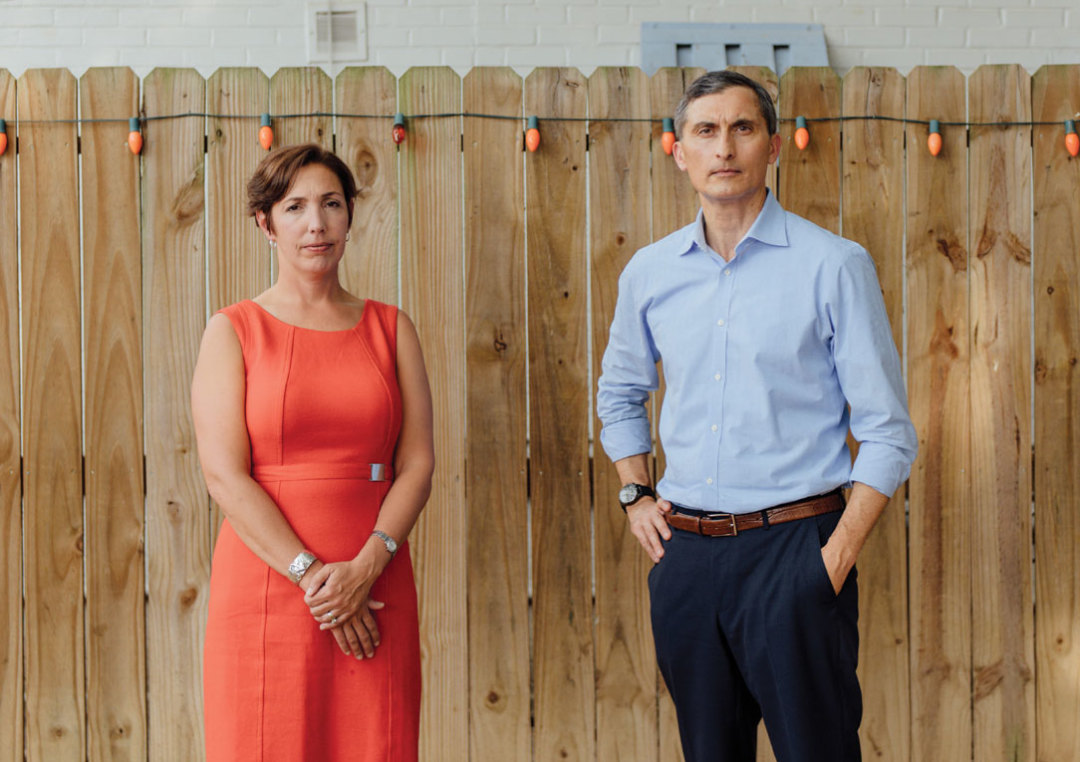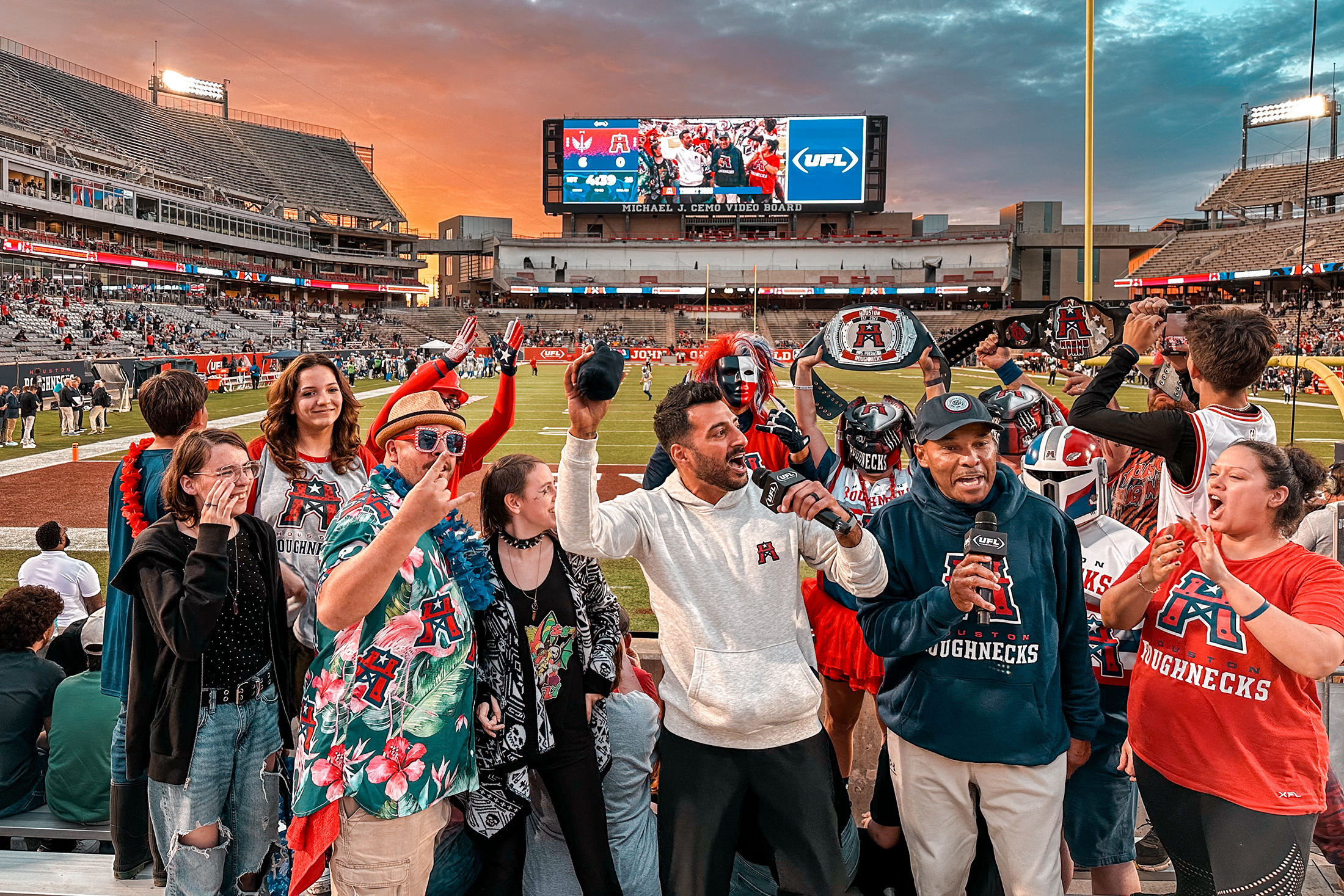Not All Lawyers!

KIND Pro Bono Attorneys Robin Minturn, Chevron, and Stan Perry, Reed Smith LLP
Image: Max Burkhalter
West Alabama Ice House was quiet, unusually for a Friday happy hour, its dearth of patrons the consequence of a brutal July heat wave. Among the few intrepid types: Robin Minturn and Stan Perry, both of whom consented to melt in their lawyer best so they might tell us about a 17-year-old Guatemalan boy.
Diego, we'll call him. The sixth of eight children, he fled a violent home life in the isolated highlands of Guatemala, the lawyers say, making his way across the border in December 2014. But "his story starts from when he was a small child,” Minturn said. “His father has been abusive his whole life—he's an alcoholic.” Instead of providing for them, the lawyers said, the father beat his family—mostly Diego’s mom, but also anyone who got between them, including, at various times, the boy himself, his elderly grandmother, and his sister, whom he attacked with a machete.
It took months for Diego to make it to the US, a journey the slight-of-stature boy accomplished by hiding in the luggage compartments of buses and sleeping in warehouses. When he got to Mexico, he was held captive by smugglers until his older sister, who lives in Houston, paid a ransom. At last he crossed the border into Texas, where he was promptly apprehended by Border Patrol.
“It’s just unbelievable,” Perry said, recounting some of the stories he’s heard while serving on the advisory committee for the Houston branch of Kids in Need of Defense, a national group that provides legal aid for unaccompanied immigrant children. “They’re often running from somebody who’s threatening them. The young women, they actually have to dress them as guys, because otherwise they’re subject to human trafficking. The guys are at risk of getting picked off by gangs….I think they go through that because the danger at home is so great. They don’t really have another option.”
And then they arrive in America, only to face an unfamiliar court system. “It’s a pretty confusing maze of state and federal law, and this form and that form,” said Perry, who partnered with Minturn on Diego's case. “I can’t imagine somebody going through this without attorneys….I mean, for two attorneys, it’s still a byzantine process.”
After a three-month detainment in Chicago, Diego was released to his sister last March, moving into her apartment in southwest Houston. In May, Perry and Minturn entered the picture, planning to petition the state court to grant custody of Diego to his sister, 15 years his senior, based on the abuse and neglect he experienced back home. If that’s successful, they’ll petition to get him Special Immigrant Juvenile Status, which would allow him to become a US permanent resident. The attorneys are confident, they said, that the case will go through.
There are, of course, those who wouldn’t want that, who believe letting Diego stay would only further strain a strained system. Perry acknowledged that, but added, “I will say this, in the three cases I’ve been involved in with KIND, all the people”—those who’ve adopted relatives fleeing abuse in their home countries—“have had jobs. Not a single one of them gets any state or federal assistance. Zero.”
Perry and Minturn didn’t know each other before taking Diego’s case. Both are corporate lawyers, both with connections to Latin America. Perry, a founding partner of the Houston branch of Reed Smith, a global law firm, has a Mexican-born grandmother and has done charity work in El Salvador. Minturn, in-house counsel at Chevron’s shipping division, studied abroad in Mexico during college and has traveled extensively throughout Central America.
Houston, they said, is a hub for KIND cases. “We are the closest major city to the border which they cross,” said Perry, “and also a city with a large population of Salvadorans, Guatemalans and Hondurans. And we’re a city that I think has reached out, whether through lawyers or other groups, to help immigrants. Houston has that reputation.” The lawyers say that KIND’s Houston office has received over 1,200 case referrals since its founding in 2009.
While Minturn and Perry both said they felt confident that his petition would be successful, Diego himself—a quiet, mature-for-his-age boy—is not so certain. Furthermore, he’s concerned for the fate of his relatives back home. But Diego remains hopeful. He looks forward to going to school—something he didn’t do formally back in Guatemala, as there’s a fee and his father didn’t pay it.
Both attorneys said one reason they’re helping Diego is that they have children of their own. Immigration is "a daunting enough process as an adult,” said Minturn. “Here you’re talking about kids. I have a 5-year-old, and there are children that young in this process. How do they even understand what’s going on?”
Working with Diego and KIND, Minturn added, has reminded her of why she went into law in the first place. “This might sound corny,” she said, “but legal practice is supposed to be a noble profession. And this actually makes it feel that way.”
“No question about it,” said Perry, in a voice utterly free of the cynicism we’ve come to associate with litigators of 25-year standing.




